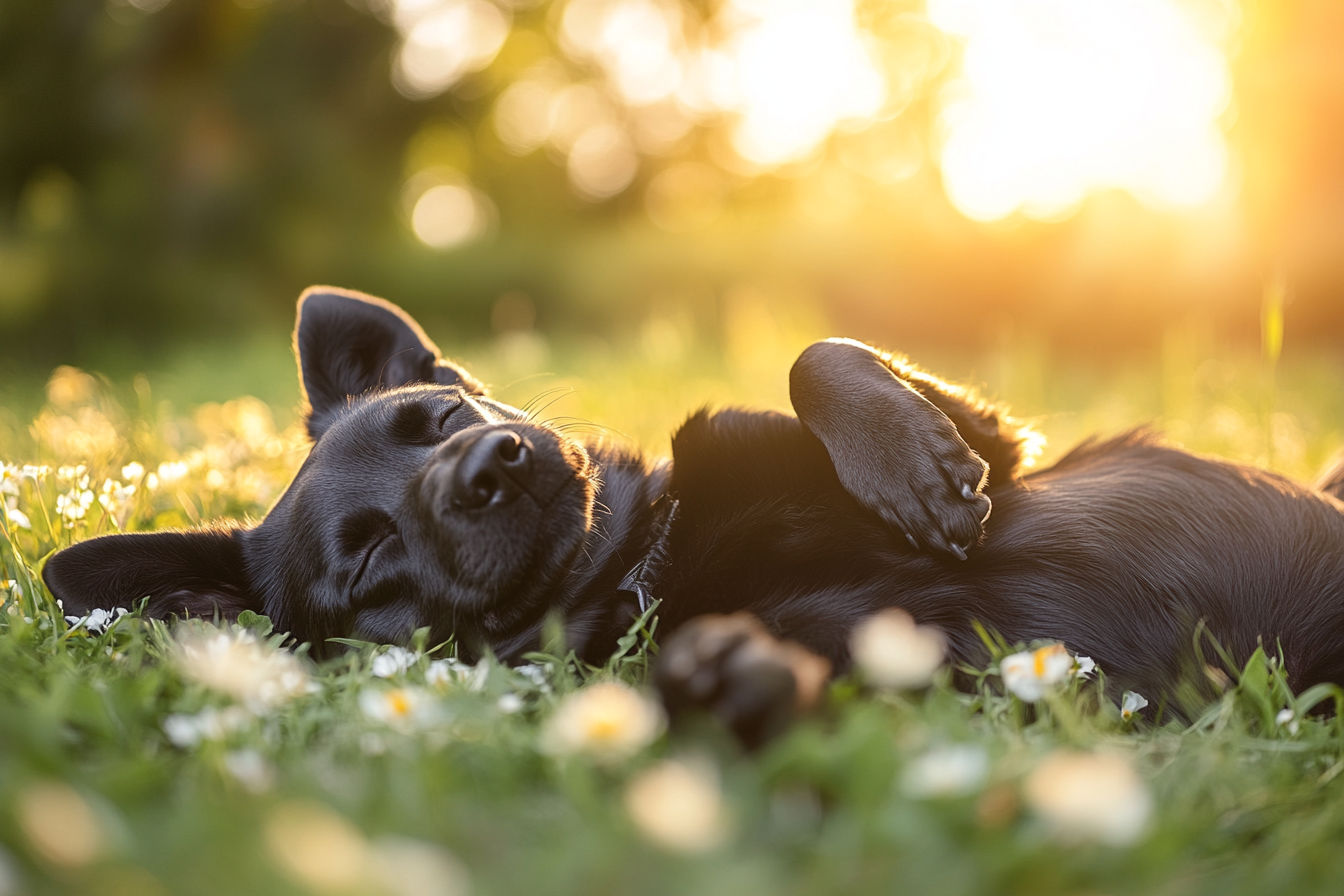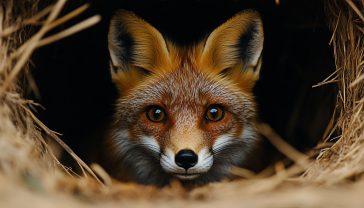Why Do Dogs Like Fox Poo? Understanding This Odd Behaviour
Why do dogs find fox poo so irresistible? Uncover the surprising reasons rooted in their instincts and sensory world that explain this puzzling behaviour.

This post may contain affiliate links. If you make a purchase through these links, we may earn a commission at no additional cost to you.
Have you ever been out walking your dog, only to watch in horror as they gleefully roll in fox poo? Or worse—try to eat it? It’s a moment familiar to many dog owners, leaving them wondering: Why on earth would a dog be drawn to something so foul?
While this behaviour might seem baffling (and downright disgusting), it actually makes perfect sense from a dog’s perspective. To truly understand it, we need to explore a mix of evolutionary instincts, communication methods, and sensory fascinations that explain this smelly obsession.
1. Ancestral Instincts: A Nod to Their Wild Roots
At the heart of this curious habit lies your dog’s ancestry. Despite their cosy lives today, dogs descend from wolves and wild canids, who often relied on scavenging to survive. When food was scarce, these animals would consume whatever they could find—including faeces—to extract extra nutrients.
Fox poo, particularly rich-smelling and nutrient-dense, might have been a valuable resource. Although domestic dogs no longer need to scavenge, this behaviour remains hardwired in their DNA. It’s an instinctual reminder of a time when survival meant making the most of every available resource.
Surprising insight: Research suggests that consuming faeces may have also played a role in parasite control among wild canids, as fresh faeces are less likely to contain mature parasites. Could your dog be tapping into this ancient health hack?
2. The Scent-Masking Strategy: Camouflage for Canines
Dogs experience the world primarily through scent, and fox poo provides a particularly pungent olfactory experience. But why roll in it? One theory points to scent-masking, a survival tactic inherited from their wild ancestors.
By covering themselves in strong odours like fox poo, wild dogs and wolves could mask their own scent from predators—or unsuspecting prey. Imagine a predator trailing a dog’s scent, only to be thrown off by the overpowering aroma of fox droppings. Clever, right?
Rhetorical question: Could your dog still be playing the role of the stealthy hunter, even if their most dangerous pursuit is the neighbourhood squirrel?
3. Sensory Stimulation: A Smelly Delight for Dogs
To humans, fox poo smells atrocious. But to a dog? It’s a bouquet of fascinating scents. A dog’s sense of smell is estimated to be up to 100,000 times more powerful than ours. Where we smell something offensive, dogs detect layers of information—like an olfactory newsfeed.
Fox poo, in particular, might offer an intriguing mix of scents that stimulates a dog’s brain, providing mental enrichment akin to solving a puzzle. Think of it as the canine equivalent of humans being drawn to strong cheeses or exotic spices.
Did you know? Dogs have a part of their brain devoted to analysing smells that is 40 times larger than ours. No wonder they find such odours irresistible!
4. Attention-Seeking Behaviour: Getting a Reaction
Sometimes, the reason behind this behaviour is simpler than we think. Dogs are highly social creatures and crave interaction with their humans. If rolling in fox poo consistently provokes a strong reaction—be it shock, laughter, or scolding—your dog might repeat the behaviour purely for attention.
After all, from your dog’s perspective, any attention is better than no attention. If your shouts and frantic cleaning follow every encounter with fox poo, your dog could interpret this as an effective way to engage with you.
Pro tip: Stay calm when it happens. Reacting dramatically might unintentionally encourage the behaviour.
5. Nutritional Curiosity: Are Deficiencies Driving the Habit?
While less common, some veterinarians believe that dogs might be attracted to faeces—including fox poo—due to underlying nutritional gaps. Faeces can contain undigested food particles, minerals, and vitamins that may appeal to a dog with an unbalanced diet.
If your dog is consistently drawn to fox poo, it might be worth reviewing their nutrition. Are they receiving enough protein, fibre, and essential nutrients? Consulting with a vet could help rule out dietary causes.
6. Natural Curiosity: Dogs Being Dogs
Sometimes, the simplest answer is the most accurate: dogs are curious by nature. Exploring the world through their noses, they investigate everything from new plants to unfamiliar scents—and yes, fox poo.
This behaviour could simply be an extension of their natural curiosity. For dogs, each scent tells a story: Who passed this way? What did they eat? Where did they come from? Fox poo might just be a particularly juicy chapter in the scent-based novel they’re reading.
How to Stop Your Dog Rolling in Fox Poo
Although this behaviour is natural, it doesn’t mean dog owners have to accept it. Here are a few practical tips:
- Distraction Techniques: Bring toys or treats on walks to redirect your dog’s attention.
- Training Commands: Reinforce reliable recall and “leave it” commands.
- Leash Control: Keep your dog on a lead in areas known for fox activity.
- Scent Alternatives: Provide your dog with safe, stimulating scents at home to satisfy their curiosity.
Final Thoughts: Embracing the Quirks of Canine Behaviour
While your dog’s love for fox poo may never fully disappear, understanding the reasons behind it can help you manage the habit. From ancestral instincts to sensory stimulation, this behaviour is just another reminder of how fascinating our four-legged friends truly are.
So, the next time your dog discovers a particularly “interesting” scent, you’ll know they’re simply expressing their inner wild canine. After all, life with dogs is never dull—and would we really want it any other way?






